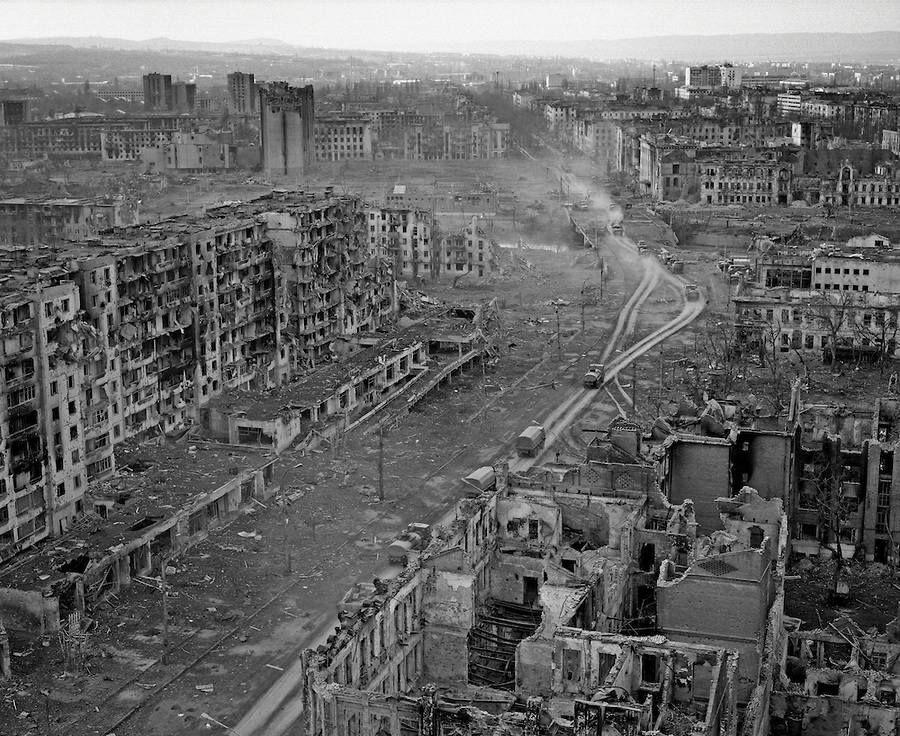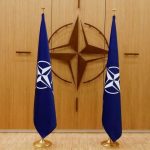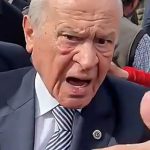Nearly three decades ago, when post-Soviet Russia launched its first bloody war on Chechnya, Moscow traded its prospects for democracy for renewed, revanchist imperialism. When in 1993 then-President Boris Yeltsin decided to move against his opposition in the Russian parliament, he used the military to crush it. With the help of the military generals who backed him in his assault on the parliament, Yeltsin dismantled Russian parliamentary democracy and rewrote the constitution to secure presidential authoritarianism. He paid back the generals by destroying Chechnya. Yeltsin’s undemocratic move set the precedent for Russia to use violence at home and abroad to strengthen personalized rule.
Russia lost the first Chechen War of 1994-1996 due to the Russian army’s weakness and the resilience of Chechen leader Dzhokhar Dudayev’s command. Although Russian and international human rights organizations and European Union states condemned Russia’s crimes against humanity, Yeltsin successfully sold the war to the United States as an internal conflict against “banditry.” And in one of its greatest strategic missteps, the United States failed to condemn Yeltsin—with President Bill Clinton instead comparing Yeltsin, incredibly, to Abraham Lincoln fighting the Confederates. Since Clinton’s priority was nuclear arms reduction instead of pushing Russia to comply with international law, as European states advocated, the United States provided financial assistance to Russia instead, partially for denuclearization.
A few years later, Vladimir Putin, too, used a war in Chechnya to legitimize and strengthen his personal power. In August 1999 Putin used the pretext of Islamic terrorism to launch the Second Russian-Chechen War. He officially labeled it a “counter-terrorist operation,” which he thought would be short, to raise his own popularity, rising from an unknown political appointee as prime minister to the president of Russia.
Like Yeltsin, Putin’s path to domination within Russia arose thanks to military force. Proving victorious in Chechnya, with huge losses over 10 years, Putin appointed a proxy governor—Akhmad Kadyrov, the father of Ramzan Kadyrov—in Chechnya in 2000 in exchange for loyalty, setting the precedent for Putin’s political formula of regional domination.
Both Yeltsin and Putin nurtured populist imperial sentiment, a belief that Russia is the victim of external powers that needs to protect itself by conquest.
Crucially, both Yeltsin and Putin nurtured populist imperial sentiment, a belief that Russia is the victim of external powers that needs to protect itself by conquest. The imperial myth translates colonial conquest as martyrdom in the fight against evil. Since the Russian national narrative is historically based on the idea of external enemies—Mongols, Muslims, and the West broadly defined—who must be defeated, it acquired a specific national vision of seeing its imperial expansion as liberation of itself and the colonized from Russia’s enemies.
Although Yeltsin portrayed himself as anti-imperialist and a democrat to the West, he firmly believed in Russians’ regional and global supremacy. While parting with communism, Yeltsin did not part with the vision of Russia’s special global role. Even prior to Ukraine’s independence referendum in 1991, for example, he warned Ukraine that Russia would not make territorial claims only if Ukraine stayed in the union.
Putin linked the Chechen sovereignty movement to the idea of a global Islamic threat for Western and domestic audiences, referencing 19th-century Russian tsarist tropes of an unruly Muslim Caucasus that needed to be pacified with violence. These tropes were anchored in the Russian national imagination by writers like Alexander Pushkin and Mikhail Lermontov.
Ever since the second war against Chechnya, which was wildly popular, imperial sentiment proved to be a trusted resource for Putin to make his rule permanent. Today, Putin mixes tsarist imperial references by imagining himself as Peter the Great with communist values by resurrecting the figure of Soviet dictator Joseph Stalin. The mixture makes sense to Russians because it sustains the core Russian national ideology of defensive expansion against external enemies.
A fixation on expansion and regional control prevented Russian leadership and Russians from developing civic virtues of democracy and human rights. Yeltsin and Putin stuck to the formula of territorial domination to claim superpower status, failing to foster an attractive political and economic system to attract neighbors. Yeltsin and Putin’s wars on Chechnya, and later subsequent invasions, were key to preventing this transition.
While losing neighbors to a more attractive Western system of democracy that promised both prosperity and security, Russia blamed the West and the idea of Western democracy as a plot to crush Russia. It is happening again today in Ukraine.
Men demonstrate with rifles on April 6, 1992, to show support for Chechen Dzhokhar Dudayev, president of the secessionist republic. ROMAN PODERNI/AFP VIA GETTY IMAGES
The story of the Chechen independence movement is crucial to understand today because it teaches us three things about the current war. First, Russia has long turned to violence in the service of empire. It’s clear that Chechens longed for sovereignty through initially peaceful means; Chechnya’s declaration of independence took place in November 1991, long before Russian troops began slaughtering Chechens. Second, it shows that Russian authoritarianism is—and has always been—viewed through the lens of imperialism. And third, it demonstrates that the West’s choice to prioritize stability over condemning genocides may seem like a short-term solution but will lead to greater threats to international peace in the long run.
The history of the Chechen independence movement starts with a commitment to self-determination and human rights. The first leader of the Chechen independence movement, Dzhokhar Dudayev, originally committed himself to these values when he, as a Soviet air force general stationed in Estonia, refused to use force against independence demonstrators in 1988. Under the Soviet law, all republics had a constitutional right to independence. Dudayev refused to carry out Soviet leader Mikhail Gorbachev’s illegal order to crack down violently.
Dudayev’s refusal to repress a national liberation movement stemmed from his biography and the fate of the Chechen people under Russian and Soviet colonialism. Chechens suffered devastating violence after Russian colonists first arrived in the 19th century. Purged en masse through ethnic cleansing, Chechens suffered alongside other nations colonized by Russia’s European imperial project.
When the tsar was toppled in March 1917, Chechnya joined other nations in the Caucasus to successfully form an independent republic in 1917. This new nation, called the Mountain Republic, was officially proclaimed in 1918 and recognized by a number of states, including Germany, the United States, the United Kingdom, and Italy. Shortly thereafter, the Bolshevik regime destroyed the Mountain Republic, colonizing it once more. A few decades later, in 1944, Stalin used a false pretext of Nazi collaboration to deport the entire Chechen people to Central Asia, during which up to 50 percent of Chechens died. The deportation was recognized by the European Parliament as an act of genocide.
Dudayev was born on the eve of the Soviet deportations of Chechens in 1944. His family returned to the Chechen homeland after Stalin’s death. Dudayev’s decision to lead the Chechen independence movement and proclaim the independence of Chechnya were informed by the experience of Gorbachev’s violent repression of national movements in Kazakhstan, Georgia, Azerbaijan, Lithuania, and Latvia.
In competition with Gorbachev, Yeltsin largely supported Soviet republics’ independence movements. When Chechnya proclaimed independence in 1991, the Russian government was busy with its own fate, while the Chechen government made attempts at independent state-building.
But it didn’t take long for the Kremlin to try to forcibly reincorporate Chechnya. In January 1993, at an official meeting between the representatives of Russia and newly proclaimed-independent Chechnya, Russia officially accepted it as a legal subject and rejected violent interference around the status of Chechnya. Soon after that, Moscow reneged entirely, launching its first military onslaught. Just as in today’s war on Ukraine, the Russian army committed gross crimes against humanity, “from torture and beatings in notorious ‘filtration camps’ to indiscriminate shelling and bombings, forced repatriation, and arbitrary detention and arrest,” as one analysis found.
Meanwhile, the West stayed almost entirely silent about Russia’s crimes against humanity. Then, in 1999, Russia breached the second peace treaty by invading Chechnya again.

Putin commenced his career with mass atrocities in Chechnya, and he subsequently used the formula of invasion to cement his power when he sent troops to Georgia, Ukraine, and Syria. He nurtured an imperial mindset, which continues to make such wars popular among the Russian population. Therefore, it will not be enough to criticize Putin and his circle of loyalists to reform the Russian state and society in the future. A wider societal condemnation of imperialism is crucial for Russia’s future democratic development.
That means any fundamental change in the post-Putin era will have to involve facing Russia’s crimes in Chechnya. Failure to do so on a societal level will allow history to repeat. At stake is not only Chechnya’s rehabilitation but also Russia’s. Russia can become democratic only by prioritizing human rights and democracy over imperialism. Since Russia’s last chance to escape from its brutal imperial legacies died with its wars on Chechnya, securing the rights of the Chechen people is essential to restoring human rights and securing anti-imperialism as a Russian value.
Russia’s leadership in the post-Putin era must rehabilitate Chechen society and statehood. The first step should involve the official recognition of genocides in the 19th, 20th, and 21st centuries and officially admitting Chechnya’s history of independent statehood. Dealing with Yeltsin’s and Putin’s legacies will mean full-scale reparations to all the victims of the Russian-Chechen wars. During the last two wars between 1994-2009, up to 300,000 people were killed.
Any new democratic Russian government will be responsible for bringing Kadyrov and his circle to justice.
Secondly, since the Kadyrov family’s rule is a creation of Putin’s regime, dealing with Putin and his legacy automatically means dealing with the Kadyrov legacy. After brutal suppression of Chechnya, Putin enabled the Kadyrov regime there as a colonial tool to suppress the Chechen people’s sovereignty claims. The suppression of pro-independence voices through enforced disappearances and violence, which can be characterized as a crime against humanity, still persists today.
Given the signs of the local population’s persistent subversive disagreement with the Kadyrovs, Ramzan Kadyrov will most likely have little chance of political survival in the absence of Putin’s financial and military support. However, any new democratic Russian government will be responsible for bringing Kadyrov and his circle to justice.
Any political program for a new Russia that does not guarantee international sovereignty for Chechnya will be a danger not only to its neighbors, but also to the many diverse nations such as Tatarstan, Bashkortostan, and Dagestan within Russia.

While other national republics should have the right to claim and negotiate sovereignty, the question of Chechen independence must be seen as a separate issue and discussed from a human rights perspective rather than a geopolitical one. Chechen people have suffered unimaginable brutality. They already chose independence twice in recent history. By restoring their dignity and independence, Russia and the international community will restore commitment to human rights and democracy.
By legally admitting the genocides against the Chechen nation and securing sovereignty, Russian society will take responsibility for its past atrocities and develop respect for civic and sovereignty rights.
The international community will need to investigate and launch truth commissions for Russia and Chechnya to achieve the long road to justice.
It is no coincidence that Ukraine was the first nation that seriously took steps for Chechnya’s rehabilitation. In October, the Ukrainian parliament recognized the independence of the Chechen Republic of Ichkeria and the genocides committed by the Russian government against the Chechen people. The international community will need to investigate and launch truth commissions for Russia and Chechnya to achieve the long road to justice. Promising full autonomy, as Yeltsin once did, proved to be illusory. Russia must now be bound by international law, be brought to the international court of justice for its crimes against humanity, and accept the loss of some territories as Germany did after World War II.
Dismantling Russia’s imperial mentality is not an impossible or dangerous task. Germany’s path from a destructive colonial dictatorship to democracy was paved with the government’s acceptance of responsibility for wartime atrocities. Germany’s leaders asked for forgiveness, paid reparations to victims of the Holocaust and Nazi forced laborers, built monuments to genocide in the center of Berlin, made Nazi atrocities a core part of school curriculum, and prohibited Nazi propaganda and Holocaust denial.
It is for Russia and Russian society, ultimately, to face the atrocities in Ukraine and Chechnya and elsewhere to launch a process of democratization, for the sake of its colonial victims and Russians themselves.
A colleague based in Chechnya who wishes to remain anonymous contributed to this article.
By: Botakoz Kassymbekova – an assistant professor in modern history, specializing in Russian and Soviet history, at the University of Basel in Switzerland. Twitter: @BotakozKassymb1
Source: Foreign Policy




